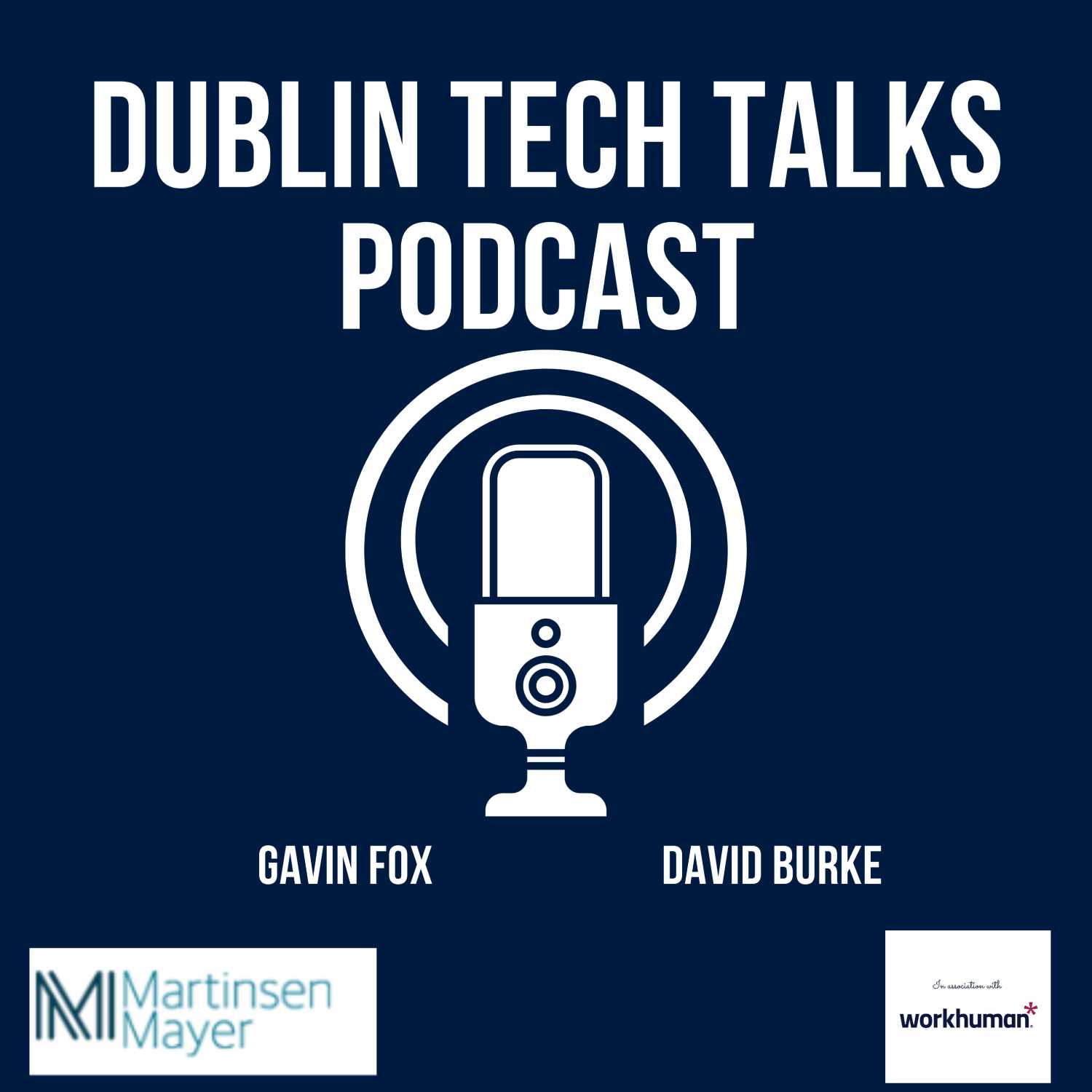 |
RockWater RoundupAuthor: RockWater, Chris Erwin
Chris Erwin and Andrew Cohen quickly break down Media x Commerce and Creator Economy news. From digital video and social audio to livestreaming, NFTs, sports betting, and more. Language: en Genres: Business, Investing, Management Contact email: Get it Feed URL: Get it iTunes ID: Get it |
Listen Now...
Riches in Niches and the 40% of Non-Whites (2022 Prediction)
Episode 18
Thursday, 24 February, 2022
We’re in the midst of not one, but two, once-in-a-generation paradigm shifts: the “Streaming Wars” and the “Audio Wars”. And industry players are spending big on "land grab" strategies to own tomorrow's consumer. But in 2022, we expect the deal flow to evolve, where streaming and podcast platforms will:Expand their audience acquisition efforts beyond “core” consumers and into underserved communities (e.g. BIPOC, LatinX, AAPI, Women, Gen-Z, etc)Generate incremental audience reach, while increasing platform stickiness and deepening monetization by onboarding passionate affinity-groups (e.g. sports fans, true crime fans, kids & families, etc.)These two goals share one solution: specialized content creators dedicated to valuable niche verticals. There’s a lot to break down here, so we've split up this analysis into a 2-part episode. Today we walk through how the next phase of the “IP Wars” -- across both video and audio -- will be impacted by a renewed emphasis on studios and production companies that cater to underserved / multicultural audiences. Then on our next episode, we’ll break down the role of creators that cater to passionate affinity-groups.Subscribe to our newsletter. We explore the intersection of media, technology, and commerce: sign-up linkLearn more about our market research and executive advisory: RockWater websiteEmail us: rounduppod@wearerockwater.com--EPISODE TRANSCRIPT: Chris Erwin:So Andrew, you just wrote a beast of a piece that is our first 2022 prediction. And that is that the IP wars will evolve to prioritize specialized creators that super serve distinct communities. I will say, look, the feedback I got from some of our readers is how long did it take to write this thing? Andrew Cohen:Well, we wrote a long one about the IP wars and M&A in the fall. And I guess had a lot more to say. There's a lot going on. So excited to get into it. Chris Erwin:It's funny, every time you and I talk about an outline for our predictions, we're like, all right, let's try and get this down to two pages. And then it comes out five times the size and we're okay with it because it's good content. Andrew Cohen:I appreciate the leeway. Chris Erwin:All right. So let's set this up for our listeners. We are in the midst of not one, but two once in a generation paradigm shifts, right? The streaming wars and the audio wars, which we've written extensively about in 2021. Both markets are undergoing transformational growth. So for example, the OTT video market is projected to be worth 218 billion by 2026, that's a 19% CAGR from 2020. And then in terms of audio, monthly podcast listenership is expected to hit 164 million by 2023. That's a 41% increase from 2021. So as a result, both industries are undergoing land grab spending sprees, operating on a similar principle, spend aggressively on IP and talent that will attract and retain audiences in an effort to win market share today while each market is in its formative stage, and consumers are developing their routine. Those who do this successfully will become the default destination for generations to come when the market is fully matured. Chris Erwin:So there's a few different deal examples I'll quickly walk through here. I think we had initial like 30 deals on this list, but we got it down to four. So on the video side, we're seeing studio and production company M&A, we saw Candle Media acquire Moonbug Entertainment for three billion in November of last year. And then we've also seen interesting IP and talent deals on the video side as well. So I think ViacomCBS paid $900 million to expand and the universe of South Park Studios. That includes in creating more content and then moving into different mediums like gaming, film, TV, and much more. Chris Erwin:And then on the audio side, again, studio and production company, M&A, we saw Amazon acquire Wondery for 300 million back in December of 2020. And then similarly, also some IP and talent deals are ramping up. Spotify signed Joe Rogan to an exclusive distribution deal for what was initially reported at as 100 million by The New York times. But which I think just out this morning or yesterday, I think the updated estimate is that it's a $200 million deal. Pretty impressive numbers here, Andrew. Andrew Cohen:For sure. And definitely think looking forward, this land grab is far from over. Definitely do not expect the deal flow to disappear in 2022 when it comes to the IP wars, but we do expect it to evolve. So we wrote about it in the piece and we'll talk about today. So we expect both streaming and podcast platforms are going to do two things. One is that's expand their audience acquisition efforts beyond kind to these core consumer groups and into what we consider underserved communities. So that's BIPOC, Latinx, Asian Pacific, women, gen Z, all of these other communities. And two, they're going to want to generate incremental audience reach while increasing platform stickiness and deepening monetization by onboarding passionate affinity groups. So things like sports fans, true crime fans, kids and families, sneaker heads, all of these kind of really sticky communities. Andrew Cohen:And as you we think about it, these two goals share one solution, which is specialized content creators that are dedicated to these kind of valuable core communities. And there's a lot to break down here. So what we're going to do is split up this analysis into a two part episode. So today we'll walk through how the next phase of the IP wars across both audio and video is going to be impacted by a renewed emphasis on studios and production companies that cater to underserved and multicultural audiences. Then on our next episode we'll break down the role of creators that cater to these passionate affinity groups and how that's going to affect the next wave of M&A across these IP wars. How does that sound? Chris Erwin:Yeah, sounds good. It'd be way too much for one episode. And I think we're still biting off a lot here. Let's dive into underrepresented communities. So as future phases of the streaming war and the audio wars unfold, right, the consumption preferences of early adopters, they're all but cemented. Therefore, the high growth demographics will become increasingly valuable targets for customer acquisition. As a result, platforms are increasingly focused on providing inclusive storytelling with diverse representation so that consumers from all backgrounds can find programming that brings them onto these platforms and keeps them there. Chris Erwin:So let's look at some key stats. These are pretty eye popping to me. Non-white consumers account for about 40% of the US population. And that number is steadily increasing. Also, the buying power of non-white consumers has grown by 555% since 1990. So that went from 458 billion to three trillion. So no platform will win its respective land grab without this 40%, right? This is probably going to be the new majority over the next few years. So as the initial target audience is all but acquired, the next phase of the streaming wars and the audio wars will be focused on multicultural audience expansion. Now, although this trend is universal across both streaming and audio, there are nuances in terms of how these trends will manifest themselves this year. So let's break them out one by one, starting with the streaming wars. Andrew, take it away. Andrew Cohen:Yes. So taking a look at how underrepresented audiences are going to impact the streaming wars in 2022, just like we've seen in the past with the investments in Moonbug, Hello Sunshine, all of that, the flow of investment capital from private equity funds in 2022 is going to mirror the capital flow from the major content buyers, which is mostly the streaming platforms. And we believe that in 2022 content spends are going to be redirected towards talent and IP that can help them reach new multicultural demographics. This is important. BIPOC audiences, for example, they over index on streaming. And despite making up only 13% of the US population, they actually make up anywhere between 15 and 39% of the viewership on top OTT platforms. Yet, despite this less than 5% of the leading actors on streaming shows are black. So it's no surprise that a recent study showed that the film and TV industry can unlock an additional 10 billion in annual revenue. That's a 7% increase by, "Addressing the persistent barriers around diversity and representation." That's huge, but also not to mention it's just the right thing to do. Chris Erwin:100%. This gap in the market Andrew has enabled the emergence of niche streaming platforms like Tyler Perry's BET plus, which reach 1.5 million paid subs in its first 18 months. This increased demand is already leading to a surge of investments in supply via new production companies that focus on expanding representation through storytelling. A few examples here, ViacomCBS partnered with Kenya Barris and others to launch BET Studios, which provides equity ownership to black creators across premium TV and film content. Also MACRO, a film studio with the state admission of the voice and perspective of people of color in film and media recently raised 150 million. Chris Erwin:Now there's other examples like LeBron James’ SpringHill Entertainment and more, but we got limited time. So we got to keep moving. As the streaming land grab expands, we expect these production companies to become increasingly valuable. Therefore, we predict that private equity companies will soon begin acquiring more studios with a specific focus on the demos that have long been overlooked by Hollywood. And in order to position themselves for returns on those exits, we predict that venture and growth funding will start pouring into those spaces in the near term as well. So then the next question is Andrew, how will this trend play out in the audio wars? Andrew Cohen:Good question. So similarly podcast providers need to find new audiences and luckily for them, multicultural consumers love podcasts. In fact, 43% of podcast listeners are non-white. So given that less than 40% of US population is non-white that means that podcasts over indexes on diverse audiences. And the growth of these audiences are actually dramatically outpacing the growth of white listenership. So for example, Latino podcast audiences have grown by 6x over the past nine years. BIPOC and Asian listenership has grown by 5x over the past nine years. And by comparison, white listenership has only grown by 17% over the past six years. Andrew Cohen:So there's some saturation here. So therefore we believe that we'll soon see kind of the audio native version of BET, Telemundo, Shondaland emerged to capitalize on this next wave of the audio spending spree. But also the video native companies that have already built fandoms in this space, like the company I just listed, they will soon begin to double down by expanding into audio, which I think leads to kind of the big conclusion, which is that really it's going to be these specialized content creators are really going to be medium agnostic going forward. What do you think? Chris Erwin:Andrew, to that end, the worlds of audio and video are converging. So all the major streaming services have launched major podcast initiatives and are adopting podcasts into film and TV shows. For example, Spotify, Wondery and other owners of audio native IP have signed major output deals to adapt their podcast into film and TV. If you can create content that connects deeply with a particular community, you're going to be in high demand by the platforms vying to win new eyeballs or new ears. So therefore in 2022, we expect that specialized studios and production companies will seek to maximize their value by expanding their output to cover both mediums. So the most valuable IP creators in 2022 will be the one who can delight one audience across two mediums. I like this phrasing. Think you came up with this, Andrew, the most valuable bullet makers quote unquote, will be those who can leverage their singular expertise to supply the front lines with the ammunition to win the fandoms they so desperately need. And I think with that, I think that ends part one of this part two series. Next week we'll talk about passionate affinity groups. Andrew Cohen:To be continued. See you next time.











